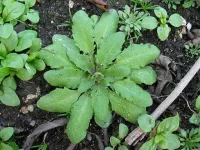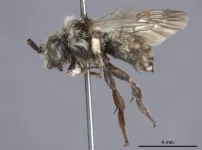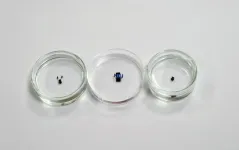COVID-19 reinfection rate less than 1% for those with severe illness
Two deaths were associated with reinfection, but most cases were mild
2021-06-15
(Press-News.org) A review of more than 9,000 U.S. patients with severe COVID-19 infection showed less than 1% contracted the illness again, with an average reinfection time of 3.5 months after an initial positive test. Those are the findings from a study conducted by researchers from the University of Missouri School of Medicine and MU Health Care.
The researchers teamed up with the MU Institute for Data Science and Informatics and the Tiger Institute for Health Innovation to review data from 62 U.S. health care facilities. They found 63 of the 9,119 patients (0.7%) with severe COVID-19 infection contracted the virus a second time, with a mean reinfection period of 116 days. Of the 63 who were reinfected, two (3.2%) died. Patients categorized as non-white were at greater risk of reinfection than white patients.
"Our analysis also found asthma and nicotine dependence were associated with reinfection," said lead researcher Adnan I. Qureshi, MD, a professor of clinical neurology at the MU School of Medicine. "However, there was a significantly lower rate of pneumonia, heart failure and acute kidney injury observed with reinfection compared with primary infection."
Qureshi defined reinfection by two positive tests separated by an interval greater than 90 days after the initial infection resolved, as confirmed by two or more consecutive negative tests. He analyzed data from patients who received serial tests between December 2019 and November 2020.
"This is one of the largest studies of its kind in the U.S., and the important message here is that COVID-19 reinfection after an initial case is possible, and the duration of immunity that an initial infection provides is not completely clear," Qureshi said.
In addition to Qureshi, the study authors include fellow MU School of Medicine collaborators Iryna Lobanova, MD, research specialist in the Department of Neurology; S. Hasan Naqvi, MD, associate professor of clinical medicine; William Baskett, graduate student; Wei Huang, graduate student; and Chi-Ren Shyu, PhD, Director, MU Institute for Data Science and professor of Informatics, Electrical Engineering and Computer Science.
INFORMATION:
Their study, "Re-infection with SARS-CoV-2 in Patients Undergoing Serial Laboratory Testing," was recently published in the journal Clinical Infectious Diseases. Support for this study was provided by the National Institutes of Health. The authors of the study declare that they have no conflicts of interest related to this study and the content does not necessarily represent the official views of the National Institutes of Health.
ELSE PRESS RELEASES FROM THIS DATE:
2021-06-15
Plants evolve specialised defence chemicals through the combined effects of genes, geography, demography and environmental conditions, a study published today in eLife reports.
The findings reveal a pattern in the types of defence chemicals plants produce across Europe, and describe some of the evolutionary processes that create them.
As plants are immobile organisms, they rely on producing defence chemicals called specialised metabolites for survival. Specialised metabolites have extensive variation in their structure, such as the number of carbon molecules ...
2021-06-15
June 15, 2021 - Canadian researchers have discovered that a bee thought to be one of the rarest in the world, as the only representative of its genus, is no more than an unusual specimen of a widespread species.
Scientists with the Canadian Museum of Nature (CMN) and York University have reclassified the mystery bee, collected somewhere in Nevada in the 1870s, as Brachymelecta californica. They note that it's an aberrant individual of a species, the California digger-cuckoo bee, that is part of a group that includes five other species. All are cleptoparasitic bees, with females that lay eggs in the nests of digger bees. Brachymelecta californica itself is known to be widespread ...
2021-06-15
A recent UCLA clinical trial has shown encouraging results in helping daily smokers who are also heavy drinkers quit smoking and cut down their alcohol intake.
The study of 165 people tested two prescription drugs -- varenicline, for smoking addiction, and naltrexone, which is used to treat alcoholism. Studies have shown that varenicline, marketed under the brand name Chantix, may also be effective in reducing alcohol consumption.
Participants, who ranged in age from 21 to 65, smoked at least five cigarettes a day, with male participants generally consuming more than 14 drinks a week and women more than seven per week.
Over the 12-week study period, each participant received 2 milligrams of varenicline twice a day. Roughly half the group -- 83 participants -- also received a 50-milligram ...
2021-06-15
Hippopotamus aren't the first thing that come to mind when considering epidemiology and disease ecology. And yet these amphibious megafauna offered UC Santa Barbara ecologist Keenan Stears(link is external) a window into the progression of an anthrax outbreak that struck Ruaha National Park, Tanzania, in the dry season of 2017.
Through surveys and GPS monitoring, Stears and his colleagues, Wendy Turner, Doug McCauley and Melissa Schmitt, revealed that reduced dry-season flows in the Great Ruaha River indirectly spread the disease by affecting hippo movement. The results, which appear in the journal Ecosphere(link is external), present a unique perspective on disease ecology and illustrate how anthropogenic changes can impact wildlife and human health.
The ...
2021-06-15
A team of scientists at Nanyang Technological University, Singapore (NTU Singapore) has developed millimetre-sized robots that can be controlled using magnetic fields to perform highly manoeuvrable and dexterous manipulations. This could pave the way to possible future applications in biomedicine and manufacturing.
The research team created the miniature robots by embedding magnetic microparticles into biocompatible polymers -- non-toxic materials that are harmless to humans. The robots are 'programmed' to execute their desired functionalities when magnetic fields are applied.
The made-in-NTU robots improve on many existing small-scale robots by optimizing their ability to move ...
2021-06-15
Is artificial intelligence the key to preventing relapse of severe mental illness?
New AI software developed by researchers at Flinders University shows promise for enabling timely support ahead of relapse in patients with severe mental illness.
The AI2 (Actionable Intime Insights) software, developed by a team of digital health researchers at Flinders University, has undergone an eight-month trial with psychiatric patients from the Inner North Community Health Service, located in Gawler, South Australia.
The digital tool is tipped to revolutionise consumer-centric timely mental health treatment provision outside hospital, with researchers labelling it as readily available and scalable.
In the trial of 304 ...
2021-06-15
Exposure to the rhinovirus, the most frequent cause of the common cold, can protect against infection by the virus which causes COVID-19, Yale researchers have found.
In a new study, the researchers found that the common respiratory virus jump-starts the activity of interferon-stimulated genes, early-response molecules in the immune system which can halt replication of the SARS-CoV-2 virus within airway tissues infected with the cold.
Triggering these defenses early in the course of COVID-19 infection holds promise to prevent or treat the infection, ...
2021-06-15
Researchers from The Australian National University (ANU) have developed new technology that allows people to see clearly in the dark, revolutionising night-vision.
The first-of-its-kind thin film, described in a new article published in Advanced Photonics, is ultra-compact and one day could work on standard glasses.
The researchers say the new prototype tech, based on nanoscale crystals, could be used for defence, as well as making it safer to drive at night and walking home after dark.
The team also say the work of police and security guards - who regularly employ night vision - will be easier and safer, reducing chronic neck injuries from currently bulk night-vision devices.
"We have made the invisible visible," lead researcher Dr Rocio Camacho Morales said. ...
2021-06-15
Data collected for over two decades shows that rising Baltic Sea water temperature is one of the main factors in the increasingly earlier appearance and faster growth of Baltic herring larvae.
Baltic herring (Clupea harengus membras) is commercially the most important fish species in Finland, and an important part of the Baltic marine ecosystem. Conditions during herring spawning may have cascading effects on the whole Baltic ecosystem.
According to a recent research, both developmental stages in Baltic herring larvae, small and large, have shifted their timing to earlier dates.
"This suggests that herring spawn earlier and larvae grow faster, by about 7.7 days per decade. Water ...
2021-06-15
Rising numbers of liver cancer in Aboriginal and Torres Strait Islander communities has led experts at Flinders University to call for more programs, including mobile liver clinics and ultrasound in rural and remote Australia.
The Australian study just published in international Lancet journal EClinicalMedicine reveals the survival difference was largely accounted for by factors other than Indigenous status - including rurality, comorbidity burden and lack of curative therapy.
The study of liver cancer, or Hepatocellular carcinoma (HCC), included 229 Indigenous and 3587 non-Indigenous HCC cases in South Australia, Queensland and the ...
LAST 30 PRESS RELEASES:
[Press-News.org] COVID-19 reinfection rate less than 1% for those with severe illness
Two deaths were associated with reinfection, but most cases were mild





